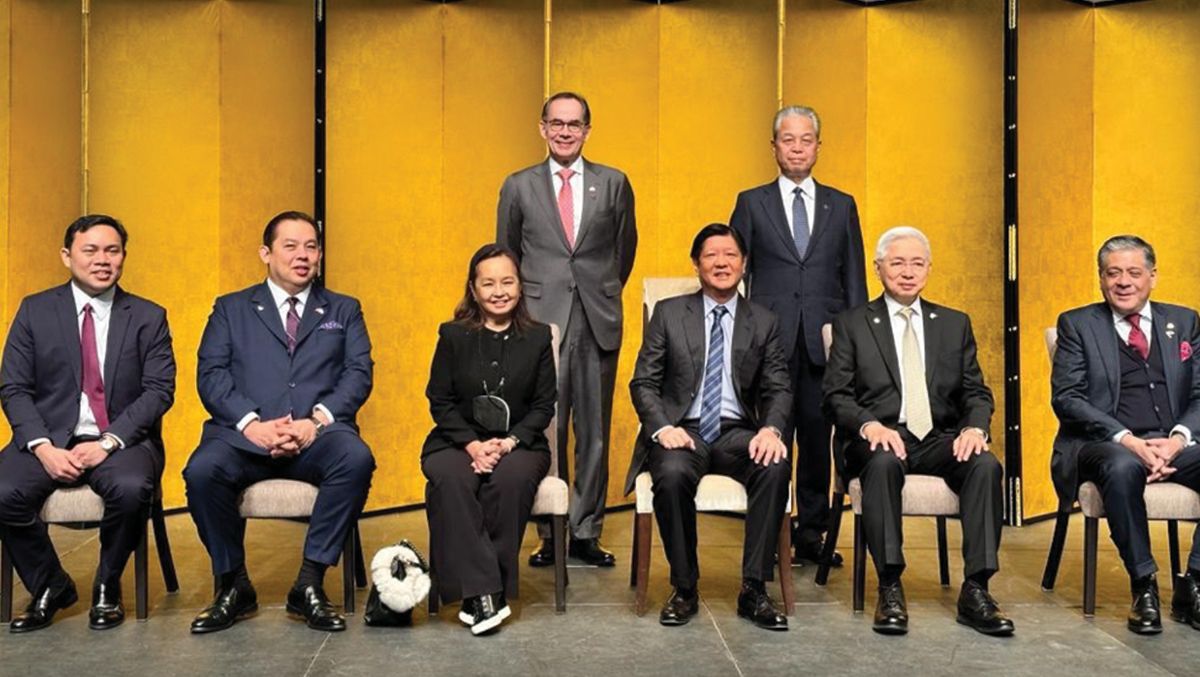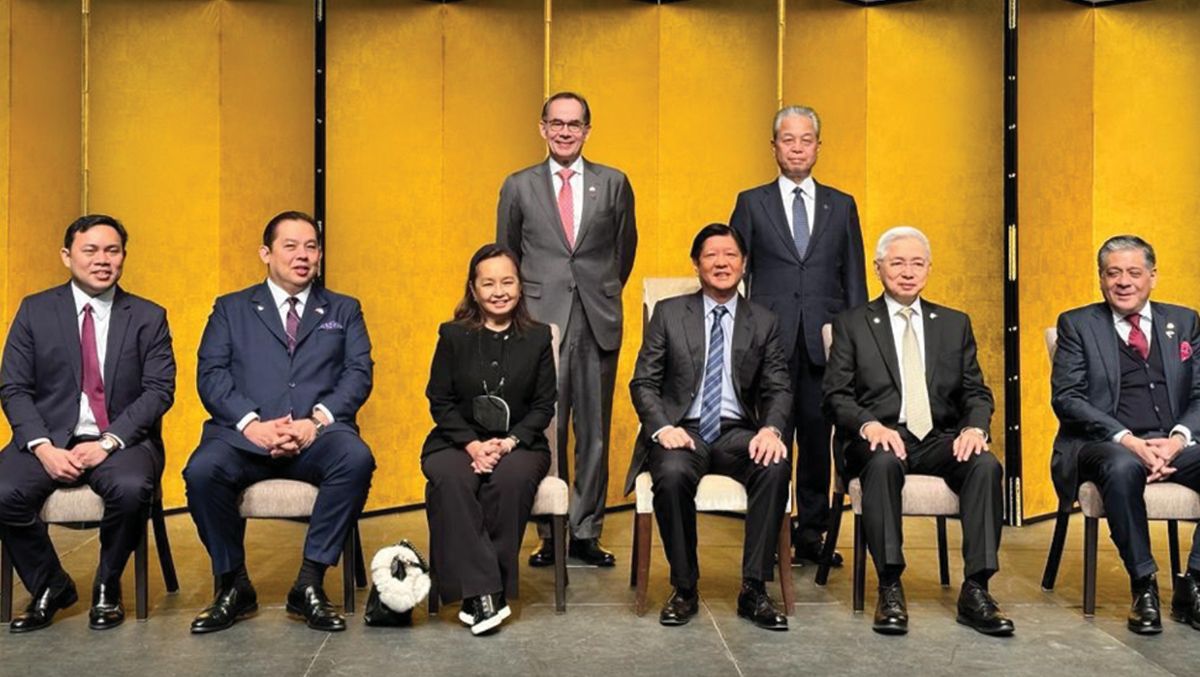Originally published in The Japan Times

The Aboitiz Group, a venerable name in Philippine business, is undergoing a remarkable transformation. Now poised to become the Philippines’ first “techglomerate,” it leverages technology, innovation and a startup culture to redefine its operations and impact.
Sabin Aboitiz, lead convenor of the Private Sector Advisory Council and president and CEO of the Aboitiz Group, shares his insights on the conglomerate’s transformation over the past decade. From its roots as a hemp-trading business, the Aboitiz Group has evolved into a diversified entity, forging significant partnerships with Japanese firms along the way.
Bridges: Can you provide an overview of the group’s journey, highlighting key milestones and factors driving its evolution into a diversified conglomerate?
Aboitiz: From its origin in the late 1800s, the group has evolved into a diversified conglomerate spanning power, banking, food, infrastructure and more. Despite facing challenges like near bankruptcy during economic downturns, our focus has been on shedding legacy thinking and embracing agility and innovation.
The launch of the “great transformation” in 2021 marked a pivotal shift toward a techglomerate model, prioritizing diversification to reduce reliance on any single industry. For instance, the sale to Jera Co. was instrumental in diversifying funds and bringing strategic value. As we transition from a conglomerate holding company to a federalized structure, our aim is to have less than 50% reliance on power and expand into the consumer space, evidenced by investments in airports and consumer products like Coca-Cola. This shift is crucial for maintaining agility and innovation in today’s dynamic business landscape, ensuring continued relevance and growth.
Can you tell us about the company’s links and collaborations with Japan?
Our relationship with Japan goes back a long way. Initially, we were involved in the shipping business, purchasing ships from Japan annually — this tradition spanned from my grandfather to my father and my brother. Many of the ships in the Philippines, especially the RORO (roll-on/roll-off) type and passenger ferries, came from Japan. This relationship strengthened every year. Later, when we ventured into Aboitiz Air Transport, we bought YS-11 aircraft from Japan and pioneered air cargo in the Philippines. Our transport company expanded strategically to cover air, land and sea, and our fleet was predominantly Japanese-made.
In Cagayan de Oro, we partnered with Kao Corp. to manufacture chemical products and shampoos for export, marking another successful collaboration.
We also formed a significant partnership in shipbuilding with Tsuneishi Shipbuilding Co., one of the largest shipbuilders in the world, based in the West Cebu Ecozone.
Japan has been a crucial part of our growth, and our collaborations with them remain strong. We continue to have discussions and welcome ongoing cooperation with Japanese firms.
–Sabin Aboitiz, President & CEO, Aboitiz Group
Could you elaborate on the Aboitiz Group’s leadership in the Philippines-Japan consortium for renewable energy innovation?
Energy, whether renewable or not, is a crucial aspect of the Philippines’ development. At Aboitiz, we approach it pragmatically, focusing on what makes sense for our country. When Jera inquired about our commitment to achieving net zero by 2050, we refrained from adhering to preset industry norms. We don’t believe in making promises that far into the future, as circumstances can change drastically.
Instead, we advocate for a balanced energy portfolio, incorporating various sources such as coal, gas, wind, solar and geothermal. This approach ensures reliability and stability in our energy supply, crucial for sustained economic growth. While renewable energy holds immense potential in the Philippines, particularly with abundant sources like geothermal and hydro, it cannot entirely replace traditional sources. Our energy landscape requires a diverse mix to meet demand consistently, especially during times when renewable sources may be less reliable, such as cloudy days or during typhoon season.
Can you share insights into your role as the lead convenor of the Private Sector Advisory Council?
Our most significant gain lies in fostering a favorable environment where everyone benefits when the country prospers. Therefore, I dedicate much of my time to this project. In April 2022, the president entrusted me with the task of formulating a plan that bridges the private sector and government — a belief he genuinely holds. He outlined six key industries during his campaign: tourism, agriculture, digital infrastructure, hard infrastructure, health care and job creation. In response, I proposed organizing six working groups, each comprising top CEOs from various sectors, regardless of political affiliation.
These groups convene regularly to provide on-the-ground insights and advice. Importantly, we value the CEOs’ time, scheduling meetings well in advance. Each sector meets every quarter, with one group meeting every two weeks. The president’s engagement has been exemplary; he devotes two focused hours biweekly, offering directives and encouragement.
What are the key technologies and innovations driving the Aboitiz Group’s vision to become the Philippines’ first techglomerate?
Our strategy centers on integrating technology into all facets of our existing and emerging businesses. This means optimizing operations, enhancing customer experiences and exploring new ventures. For example, in our power plants, we’re using sensors and automation to boost efficiency and cut costs. At Mactan Airport, we’re employing data analytics to personalize services, and our digital bank offers streamlined processes like quick loan approvals. These efforts highlight our commitment to using data strategically to drive innovation and improve customer experiences. We’ve also learned from past digital transformation efforts, focusing on fostering a culture open to innovation across our business units. Our goal is to create a more efficient work environment where technology enables progress rather than impedes it.
As the group expands into sectors like consumer markets and infrastructure, what are the key priorities or strategies guiding these diversification efforts?
The consumer sector’s remarkable growth underscores our economy’s robustness, with assets like Citibank Philippines and Coca-Cola performing exceptionally well.
Despite temporary operational challenges in the airport sector, we anticipate significant growth with impending resolutions. Our focus on renewable energy expansion, highlighted by plans to add 3,000 megawatts, aligns with our commitment to sustainable growth. Collaborations in the gas sector with Meralco and San Miguel Corp. further demonstrate our dedication to this goal.
Amid these ventures, our current-year emphasis is on integration and optimization for maximal returns. Looking forward, our strategic priorities remain centered on people, nurturing talent, fostering growth and ensuring our workforce is empowered to drive our company’s success, echoing our pandemic-era commitment to employee well-being.
What are the key priorities for the Aboitiz Group moving forward, and how do they align with the company’s strategic vision and growth objectives?
Our core principle revolves around people. Ensuring our employees’ well-being remains paramount, not just during challenging times like the pandemic but as an ongoing commitment. We’re dedicated to fostering their growth and transformation, challenging them to excel and contribute meaningfully. This people-centric approach will remain my primary focus until 2027, leaving behind a legacy of an empowered workforce. Additionally, we prioritize supporting governmental efforts for societal progress, advocating for active participation in positive initiatives.


